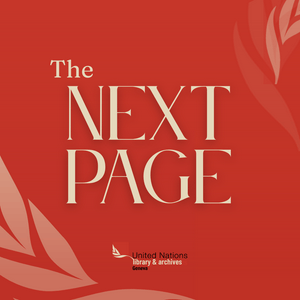This is AI x Multilateralism, a mini-series on The Next Page, where experts help us unpack the many ideas at the nexus of AI and international cooperation.
Today, the majority of AI development and deployment is controlled by a small number of powerful firms. If this path continues, the next generation of digital infrastructure underpinning our societies will be privately owned and unaccountable to the public interest.
Is there another way, one where where AI serves the common good? In this episode, Jacob Taylor (Fellow at the Brookings Institution’s Center for Sustainable Development and a 2025 Public AI Fellow) and Joshua Tan (Co-Founder and Research Director at Metagov) make the case for Public AI: shared, open AI infrastructure (much like highways, electricity grids, and public broadcasting), that is publicly responsible and harnessed to solve collective problems.
Drawing on their article Public AI is the New Multilateralism and Metagov's Public AI White Paper, they argue that building public AI infrastructure can become a new form of multilateralism, where states, academia and civil society co‑create accessible, accountable AI systems that can be shared and re-purposed to meet a range of local, regional and global needs. They share real‑world examples of Public AI already emerging, explain why middle powers have the strongest incentives to lead Public AI, and outline an “Airbus for AI” model to close capability gaps, reduce the world's dependency on a few private platforms, and solve cross‑border problems.
Resources mentioned:
The Public AI Inference Utility - publicai.co
Public AI - https://publicai.network/
Production:
Guests: Jacob Taylor and Joshua Tan
Host, production and editing: Natalie Alexander Julien
Recorded & produced at the Commons, United Nations Library & Archives Geneva
Podcast Music credits:
Sequence: https://uppbeat.io/track/img/sequence
Music from Uppbeat (free for Creators!): https://uppbeat.io/t/img/sequence
License code: 6ZFT9GJWASPTQZL0
#AI #Multilateralism #PublicAI #AIInfrastructure


